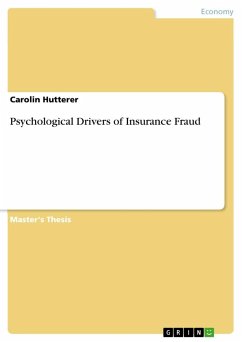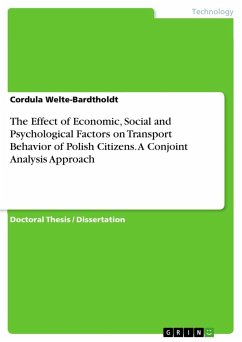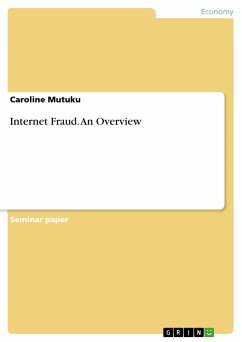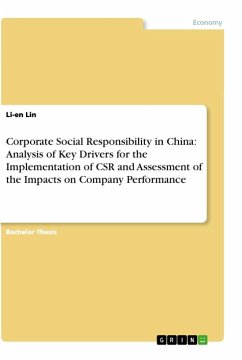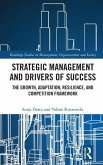Master's Thesis from the year 2017 in the subject Business economics - Miscellaneous, grade: 1,3, LMU Munich (Munich School for Management), course: Executive Master of Insurance, language: English, abstract: The following master thesis covers the psychological drivers of insurance fraud. In this scientific paper it shall be explained how insurance fraudsters try to vindicate their behavior and which forms of reasoning are therefor used. Insurance fraud itself is defined as a fraud to the detriment of an insurance company by the policy holder or a third party with the aim of obtaining unjustified coverage, demanding a false payment of damages on the merits or to the extent of paying a lower insurance premium. The fraudulent behavior starts with consciously inaccurate information during application and extends up to manipulation in the context of loss. The legal consequences of insurance fraud are the same as of any other fraudulent behavior, like a fine or a short period of imprisonment. Furthermore the insurance company can claim indemnity demands or recourse or the insured can lose his coverage. It is reckoned that the annual losses of German insurance sector caused by insurance fraud are four billion Euro and that especially in the line of automobile insurance approximately every tenth notification of claim bases on fraudulent background. About 90 percent of insurance brokers report that they already were in contact with fraudulent clients and a common line in the insurance branch states that each tenth notification of claim contains fraud and that ten percent of payments are based on unjustified or fraudulent declarations. In social context insurance fraud is a damage for all insured clients. A higher rate of fraudulent behavior leads to more payments and in conclusion to higher premiums. The increased niveau of premiums furthermore reduces the public welfare of the insured and often leads to smaller profits for the insurance companies. Thereby many small deceptions have a high impact on the insurance companies, because costs of prosecution of these smaller delicts bear no proportion to the outcome. Basically insurance fraud is not tolerated in society just as any other form of fraud. But on closer inspection and having a regard to the listed numbers concerning insurance fraud it becomes clear, that there exist different standards. In the Europe-wide European social survey 2010 87 percent of respondents declared that insurance fraud is wrong or absolutely wrong.
Hinweis: Dieser Artikel kann nur an eine deutsche Lieferadresse ausgeliefert werden.
Hinweis: Dieser Artikel kann nur an eine deutsche Lieferadresse ausgeliefert werden.

